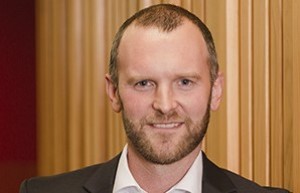CoreLogic’s latest Property Market & Economic Update shows property values have fallen for three consecutive month to an a average of $1,018,770, down 2.3% from the peak, with annual growth rates slowing to 12.4%.
The sharp post-Covid upswing in values has now given way to a firm correction, and the falls already seen to date have been spread across most geographical areas and price brackets.
CoreLogic’s chief property economist Kelvin Davidson says it’s possible the national average property value will ultimately drop by 10-15% by the middle of next year, which broadly suggests we’re potentially halfway through this correction in both duration and scale.”
“There are multiple reasons contributing to a slowdown in values, these include more listings, a shift in pricing power towards buyers, a tighter mortgage lending environment, and sharply higher interest rates,” he says.
“This weaker phase for the property market will continue into next. year, and even when the floor is reached, the experience of the Global Financial Crisis (GFC) was that it took another two to three years for the next upswing to start as values plateau.”
The combination of sharply rising interest rates and the large wave of refinancing of existing mortgages over the next year will test the property market for the rest of the year.
Sales weak
There was a weak start this year for sales and a significant drop in volumes had allowed time for the stock of listings to be replenished but had shifted the balance of power in favour of buyers.
It’s been more than a decade since a similar drop in sales activity was recorded Davidson says, noting days on market had also increased as buyers hold the balance of power with plenty of stock to choose from.
“The economy remains a little fragile, net migration could stay relatively subdued, even as the borders fully reopen, and on top of that, credit conditions remain restricted and mortgage rates continue to rise. All of these factors point to a further drop in property sales.”
As the Credit Contracts and Consumer Finance Act (CCCFA) rules ease, Davidson says more people may be able to access credit and enter the market, however it’s unlikely to move the needle significantly, with this year’s total sales projected to be about 78,000, down from 94,000 last year.
“As yet there hasn’t been an abnormally large rise in new listings flows, but this is certainly a risk as financing costs continue to increase and the returns on other assets rise too,” says Davidson.
Mortgage numbers drop
Reserve Bank (RBNZ) aggregated mortgage lending data show that fewer than 15,000 mortgages were issued last month – a record low for a June month since data started being collected in 2013.
Just after the lockdown of June 2020 nearly 22,000 mortgages were issued, while in the same month a year ago there were 26,000.
The drop in the number of mortgages taken out has been a pattern for a few months.
However, the average size of mortgages has been rising. During June, the average-sized mortgage fell from the record high of $408,000 in May to $405,000 - nearly 24% higher than the average-sized mortgage in June last year.
Total lending reached $6.056 billion, which is well down on the $8.5 billion borrowed in the same month a year ago.
Investors were lent $1 billion of this total, taking their share to 17.4% of the total borrowing, up from 16.6% in May.
First home buyers borrowed over $1.1 billion last month, while the average size of their mortgages dropped to $588,000 last month from a record high of $595,000 in May.
New mortgage commitments to first home buyers increased slightly, from 18.2% in May to 18.3% in June, while the share of new commitments to other owner occupiers dropped 1.1 percentage points from 64.2% to 63.1%.



 Search
Search
